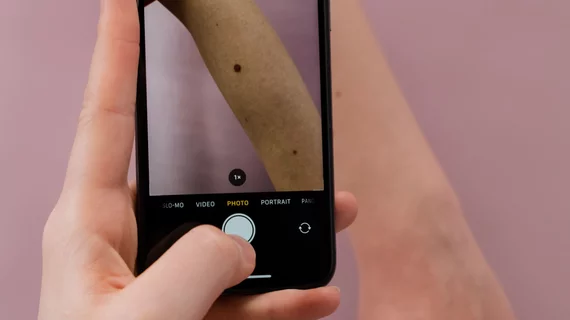Dermatologists wary about AI, more sanguine on AuI
Upon examining a skin lesion they suspected of being malignant, few dermatologists—only 8%—would hold back from performing a biopsy if an AI tool disagreed, classifying it as benign.
At the same time, more than 90% of these same physicians would err on the side of caution in the reverse scenario, performing a biopsy on a lesion they believed benign but AI flagged as likely malignant.
The findings are from a survey completed by 121 fellows of the American Academy of Dermatology.
JAMA Dermatology published the survey report as a brief research letter May 26.
Other key findings of interest include dermatologists’ higher expectations for augmented intelligence (AuI) vs. AI:
What type of impact do you think AI will have on your dermatology practice?
- 46% Positive
- 25% Unsure
- 18% Negative
- 11% None
What type of impact do you think AuI will have on your dermatology practice?
- 64% Positive
- 17% Unsure
- 10% None
- 8% Negative
Meanwhile about three-quarters of the respondents indicated they’d use an AI tool to help monitor skin lesions if the tool had accuracy similar to that of an experienced dermatologist.
The report’s lead author is Caroline Nelson, MD, of Yale. Senior author is Carrie Kovarik, MD, of the University of Pennsylvania.
“This cross-sectional study indicates that dermatologists are receptive to assistance from AI tools in diagnosing and monitoring skin lesions but value the human physician-patient relationship and accuracy,” the authors write, adding that their findings “confirm and complement” those from a recent and similar survey in China.
The latter study found almost 100% of Chinese dermatologists are “attentive to information on AI,” and 95.4% “envision a role for AuI in dermatology.”
Report posted here (behind paywall).

